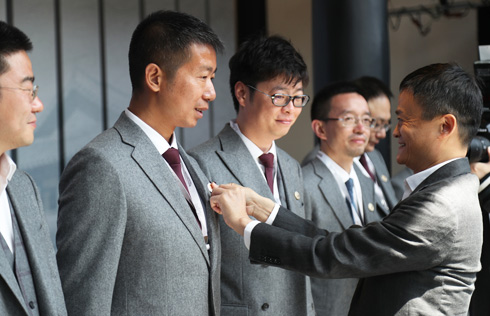Raise efficiency by downsizing
Reform aims to realign relationship between the government and the market by reducing the scale of administration
The State Council said early this year that about 70 percent of all the approval items have been eliminated or transferred to local governments, and last month it announced that it will remove or devolve to local governments another 71 administrative approval items.
In October, the central government removed 171 items of administrative examination and approval and transferred another 117 items to local governments. Such moves are in line with ongoing institutional reform and therefore should be encouraged.
During the national legislature's meeting in March, legislators passed a plan on institutional reform and the transformation of administrative functions, which puts an end to administrative approval for certain investment activities and business and occupational certification, and streamlines the business registration regime.
The main aim of the reform is to disentangle the government from the market, realigning the distorted relationship by downsizing the scale of administration and improving government efficiency.
Institutional reform, which started decades ago, has suffered frequent setbacks, but it will have a profound bearing on the country's future.
As an economy in transition, China is yet to build a fully fledged market economy, as the government is still too involved in many areas where the market is supposed to play the leading role.
For instance, there have been many complaints about the difficulty of starting up a business, as there is a great deal of red tape that needs to be negotiated. This has not only limited the efficiency of the market, it has also provided room for corruption.
The reform process has also promoted a more profound discussion as to whether a big or small government is better in the world's most populous country. Around the world, it seems those advocating small government have the upper hand, and China is following suit.
Born of a planned economy with an omnipotent big government, China has been liberalizing its economy over the past three decades. The latest decision to remove or transfer the power of approval shows reform is accelerating toward the goal of a bigger role for the market and a smaller role for the government, with the government focusing on social management and serving as market regulator rather than being directly involved in the market. It is a sign of the government's commitment to its reform agenda and that it is making headway in carrying it out.
The current power-reducing steps, however, remain inadequate. According to expert estimates based on official figures, more than 1,000 items still need to be approved by the central government.
A public discussion, therefore, needs to be initiated to assess exactly which approval items should continue to remain in the hands of the government in a market economy and which should be removed or transferred. After a consensus is reached, the government should put forward a clear timetable for further power-cutting reforms to prevent government departments from being a drag on the reform process.
It is an indispensable part of institutional reform that the scale of government be downsized to save public money and improve government efficiency. The huge public expenditure by the government has become the source of complaint.
According to calculations based on official statements, public finance now pays for as many as 57 million public servants and various types of government employees. Despite China's large population of more than 1.3 billion and its fast economic expansion, there is clearly much room for downsizing. The removal of approval items provides a good opportunity for the government to start trimming some of the fat.
Given the opposition of vested interests, it is understandable that institutional reform is a hard nut to crack and therefore time consuming. That is why some institutional reforms in the past have failed to make much headway.
But people are impatiently waiting for a more efficient government that has a clearly defined role in social and economic management and the government must press on with institutional reform.
The author is a senior writer with China Daily. E-mail: xinzhiming@chinadaily.com.cn























